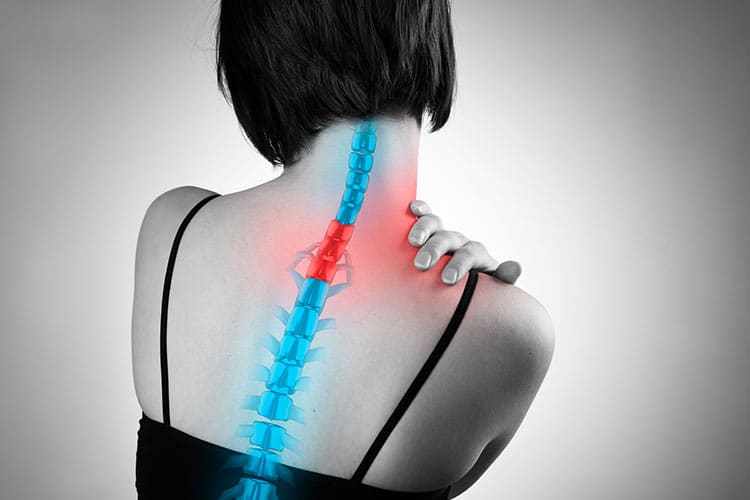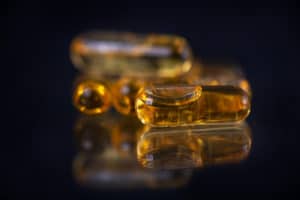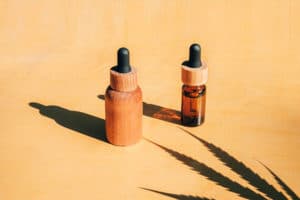CBD oil has taken the United States by storm over the last few years. It seems there’s an infinite number of products to choose from, and more are released every day.
With this, medical professionals have been conducting extensive research to determine the medical benefits of CBD oil. Some major symptoms that are alleviated by consistent CBD oil use are pain, stress, anxiety, insomnia, and inflammation.
See all CBD oil benefits here.
This is great news for patients with osteoporosis. CBD oil is becoming a more widely accepted form of treatment for the condition, with more benefits uncovered every day. Currently, we know that CBD oil can help with the chronic pain that comes with osteoporosis.
According to the International Osteoporosis Foundation, osteoporosis affects 44 million Americans over the age of 50. The number is increasing, so people are seeking alternative treatment options to help cope with the condition.
Osteoporosis lowers bone density and is the leading cause of hip fractures in the elderly. Besides CBD, other medications can help treat the condition, but they come with a set of negative side effects.
This article will cover the basics of CBD oil and how it can help patients who have osteoporosis. By the end, you will have a full understanding of how to use CBD oil and what to look out for when considering it as a treatment for your condition.
Let’s start by discussing what CBD oil is and how it works.
What is CBD Oil?
Though the use of cannabidiol (CBD) oil is a relatively new concept, researchers have studied the herbal substance since its discovery in 1940. The FDA approved it back in 2018, and since then, the medical applications of CBD oil have advanced rapidly.
CBD comes from cannabis. Yes, that means marijuana or hemp. Cannabidiol makes up 40% of the compounds extracted from the plants, but hemp has more CBD, whereas marijuana has more THC. The manufacturers often use oil to dilute and preserve CBD extracts.
CBD oil is non-intoxicating. That means that the user won’t get high from it. That’s because CBD is different from THC, which is the psychoactive compound found in cannabis that creates an intoxicating effect on the user.
The lack of a high is one of the reasons why CBD is growing in popularity and seen as a safe form of treatment for a variety of medical conditions. Because it contains less than 0.3% THC, it’s legal, and users can experience the medical benefits of cannabis without ingesting THC. Some forms of CBD contain a small amount of THC, but most products don’t contain any.
Your body has an endocannabinoid system (ECS) that helps regulate your response to pain, mood, memory, appetite, stress, and more. The ECS secretes cannabinoids for delivery throughout the body. These cannabinoids bind to certain receptors to create a biochemical response. In other words, CBD oil facilitates a process that your body already does naturally.
Whenever there’s damage to tissue or any cluster of cells, pain receptors send a signal to the brain that causes us to feel discomfort. Cannabinoids can regulate these responses, helping us feel less pain and enter into a more relaxed state.
When we add CBD oil to the picture, it alters cannabinoids’ effects, so they last longer. It essentially gives your body’s cannabinoids a power boost that helps keep your pain levels in check.
Most patients see a decrease in pain and inflammation when consuming CBD regularly. Continuous research is starting to clarify the validity behind these reactions. Now that you have a watered-down explanation of how CBD works (click here for more information on how cannabidiol works), let’s focus on how it can help osteoporosis.
Different Types of Osteoporosis
Osteoporosis is as tricky to understand as it is to treat. Just like many other bone-related conditions, there are different kinds of osteoporosis. The types of osteoporosis fall into two categories:
Type 1 Osteoporosis
Type 1 osteoporosis (postmenopausal osteoporosis) occurs mostly in women after going through menopause. Decreased estrogen levels during menopause weaken and deteriorate bones.
This type of osteoporosis is common in women aged 50 – 70 and often results in spinal and wrist fractures.
Type 2 Osteoporosis
Type 2 osteoporosis (senile osteoporosis) typically occurs in people 70 and above. This condition is far more common in women than in men. Type 2 osteoporosis is an age-related decrease in bone density due to the slowed development of bone-forming cells and is a common cause of hip fractures.
CBD Oil for Osteoporosis Patients
When CBD first hit the market as a health supplement, there was a lot of skepticism. Many thought it was just another fad that would dissolve after a few months.
Today, CBD oil is one of the best natural alternatives for pain medication. Although osteoporosis doesn’t directly cause pain, patients are at risk of fractures and other bone-related injuries when the condition becomes more serious.
Someone experiencing pain caused by osteoporosis may benefit from CBD oil. Studies have shown that CBD is a great pain reliever and can make its users feel more relaxed, even when living with extreme symptoms. It’s far less addictive than other medications and doesn’t have any known long-lasting effects.
Research has shown that CBD oil can slow down bone degeneration. CBD blocks the receptors found in osteoclasts, which are cells responsible for decreasing bone density. When these receptors are blocked, the rate at which bones deteriorate is far less than those without treatment. More studies are underway to prove this claim, but the research is promising.
Other symptoms treated with CBD oil are headaches, fatigue, and anxiety. Users report that CBD can improve sleep quality. All of these can be issues for patients with osteoporosis. Alleviating these symptoms allows your body to spend all of its energy on recovery.
How to Use CBD Oil for Osteoporosis
The first thing to do before you consider using CBD to treat your osteoporosis is to consult your doctor. Though users report a variety of health benefits from CBD oil, it’s still a new substance and isn’t a fully developed medicine. Your doctor will be able to recommend whether or not you’re suitable to start taking CBD oil to treat your condition.
Start Slowly
Many manufacturers will provide dosage guidelines on the packaging. If you’re new to CBD oil, it’s highly recommended to start with a small dose and gradually increase your dosage.
Bear in mind that to feel the full effect of CBD oil, you need to be consistent with your dosage. Taking it once won’t make a significant difference in your symptoms.
It’s also important to realize that not all CBD products are created equal. One of the best things about CBD is the different forms available and ways of taking it.
Most people ingest CBD, but there are many options available. Here are some of the common ways to take CBD oil:
- Edibles – CBD oil infused in foods like chocolate, gummies, and cookies
- Tinctures – Small droplets of CBD oil typically mixed with other oils or alcohol
- Topicals – CBD oil in the form of lotions, balms, and creams absorbed through the skin
- Smoke/vapor – CBD in the form of a flower that is either smoked or vaporized and inhaled through the lungs
Most experts recommend that you take no more than 25 mg of CBD per day in the beginning. Each of the methods above varies in strength. Make sure to check the packaging to see how many milligrams are in each dose.
You may not get it right the first time around, and that’s okay. It takes time before you perfect your treatment, but once you hit that “golden” spot, you’ll start to consistently feel the effects. Make sure to keep track of your dosage and reach out to an expert when it’s time to increase.
How Safe Is CBD Oil?
A few decades ago, any form of cannabis was frowned upon and viewed as a toxic substance. Fortunately, nowadays, there has been enough research to prove that CBD is a safe herbal remedy. You won’t run into any trouble, especially if you’re consuming it in low doses.
However, if you consume too much too quickly, there are some potentially negative side effects including:
- Nausea/drowsiness
- Diarrhea/upset stomach
- Changes in appetite
- Mood swings
- Headaches
It’s also important to know that CBD can interfere with other medications, such as blood thinners. So, if you’re already taking medication for your osteoporosis, make sure to consult your doctor before taking CBD oil.
Another crucial piece of advice is only to purchase CBD oil from a trusted company. With the ever-increasing demand for CBD oil, many “brands” extract CBD using unsafe or unsanitary methods. Such methods can harm your body and offset the positive effects of CBD.
Most reputable brands will have positive online reviews where you can get insight into the quality of the manufacturer’s or distributor’s products.
How To Find High-Quality CBD Products
The sheer number of products available can be quite overwhelming for consumers. A great way to find out which products are the best is to do research online.
To better understand CBD oil, you must know that there are three main categories of products:
Full-spectrum – This type of CBD oil is extracted using the whole plant. That means that it’s packed with multiple cannabinoids that have unique health benefits.
Broad-spectrum – Broad-spectrum CBD is the same as full-spectrum but without any THC. This category is a great option for those who are looking to benefit from cannabis without having any THC in their system.
CBD isolate – This is a pure crystallized version of CBD and can be more pure and potent than other CBD forms. Again, it’s a great option for those who don’t want any traces of THC in their system.
The right form of CBD oil will depend upon your goals. Broad-spectrum is by far the most popular because it maximizes all of the benefits without intoxicating the user.
When choosing a brand, make sure that they are trusted and have extracted their CBD safely. There are a few ways to know if a brand is trustworthy or not.
One of the best ways is to either ask the shop where you purchased the product or ask online. CBD has a massive subculture following, and people are more than happy to help newcomers.
Here are a few ways to spot a reputable CBD manufacturer:
- They are a real company – A lot of people make homemade CBD products. Though not all of them are dangerous, you don’t know how they extracted the CBD. It may contain harmful chemicals such as butane.
- Their products are lab tested by a third-party – A reputable manufacturer conducts lab tests to determine the potency and overall quality of the CBD oil. If the company has a lab report from a third-party company, chances are they are legit, and their products are of good quality.
- They have good customer service – Typically, a company that invests in a good customer support team has a high-quality service. Their support team should be able to answer most questions about their products. If you have a specific question about your condition, it may be better to ask your doctor first.
- They have good reviews online – The CBD community takes the herbal supplement seriously. Most good products are backed by countless positive reviews online. If you’re still unsure, it doesn’t hurt to ask in online forums or groups whether or not a company is reliable or not.
Conclusion
CBD oil is just about everywhere these days. Continued research to discover its many health benefits has helped get the product into more hands—and provide relief for—people with common symptoms such as pain, stress, and anxiety.
If you’re experiencing osteoporosis, whether it’s type 1 or type 2, it may be worth looking into CBD oil as a supplemental treatment. Just be sure to always consult your doctor before taking CBD oil, especially if you’re already taking medication for your condition.
Now you what to look for CBD products, you can decide which might help your osteoporosis symptoms.
FAQs About CBD Oil for Osteoporosis
Question: Can you use CBD for osteoporosis?
Answer: CBD oil is becoming a more widely accepted form of treatment for the condition, with more benefits uncovered every day. Currently, we know that CBD oil can help with the chronic pain that comes with osteoporosis.
Question: Can CBD get you high?
Answer: CBD oil is non-intoxicating. That means that the user won’t get high from it.
Question: What are the common types of osteoporosis?
Answer: There are two common types of osteoporosis. Type 1 osteoporosis occurs mostly in women. Decreased estrogen levels during menopause weaken and deteriorate bones. Type 2 Osteoporosis occurs commonly in people above 70. Type 2 osteoporosis is an age-related decrease in bone density due to the slowed development of bone-forming cells and is a common cause of hip fractures.
Question: What are the common ways to start CBD?
Answer: You can try taking CBD oil through edibles, tinctures, topicals smoke/vapor, etc
Question: What is the recommended amount of CBD you can take per day?
Answer: Most experts recommend that you take no more than 25 mg of CBD per day in the beginning. Each of the methods above varies in strength. Make sure to check the packaging to see how many milligrams are in each dose.
Question: What are the main categories of CBD products?
Answer: There are three main categories for CBD. These are full-spectrum CBD, broad-spectrum CBD, and CBD isolates.
Question: How to check if a CBD company is reputable and trusted?
Answer: You should check that they are registered, their products are lab tested by a third-party, and they have good customer service and reviews/testimonials.
Question: What are the side effects of CBD?
Answer: Some of the side effects of CBD include nausea, diarrhea, change in appetite, mood swings, and headache.









